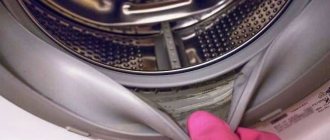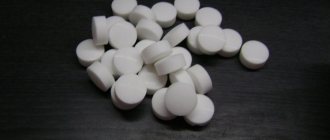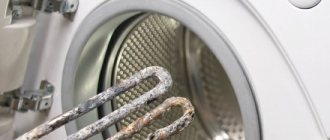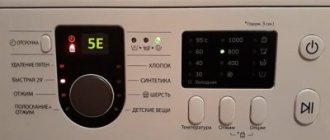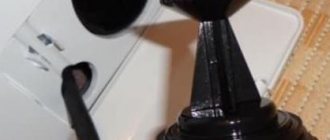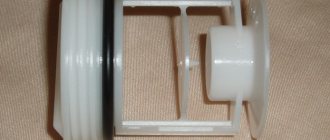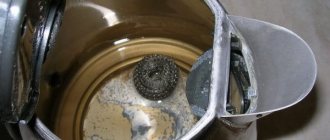In order for the dishwasher to properly cope with its duties, you need not only to follow the operating rules, but also to regularly care for the equipment. Otherwise, you may encounter troubles such as a musty smell, grease deposits, and mold. And in particularly advanced cases – even with breakdown of the equipment itself.
You will learn everything about how to clean a dishwasher with citric acid at home and extend its service life from our article. We have described in detail the methods and steps for caring for your dishwasher and listed products that have been tested in practice. Taking into account our advice, you will eliminate any problems with the operation of the machine.
Is it possible to clean a dishwasher with citric acid?
This is an organic substance, because Produced mainly from plant materials. It is safe for metals and plastics, so it is used for several purposes:
- descaling heating devices;
- rust removal;
- as an additional component of multilayer tablets and rinses - to enhance the cleaning effect.
It can be used in the dishwasher, although there are opponents who claim that the acid corrodes the rubber seals. This is not true. Would the manufacturers of tablets and cleansers add it to their products if they knew this?
Composition of salt for dishwashers
When using this word, many people think of table salt, which is used in cooking. However, these are two different chemical compounds with different actions. Externally, regenerating salt intended for dishwasher is distinguished by larger and more uniform granules. It goes through several levels of purification and has no harmful impurities. Manufacturers use their own composition for the salt mixture, with various additional components:
- sodium citrate, which kills germs;
- sodium percarbonate;
- flavorings;
- sodium disilicate and hydrogen carbonate;
- sodium polyaspartate as ion retention base and thickener.
Regardless of the composition of the water, you cannot operate the dishwasher without salt. The equipment will turn on and work in any case, but it will not last long in this mode. Lime deposits will not immediately, but will inevitably lead to failure of the heating element inside. We recommend that you familiarize yourself with the operating instructions for the dishwasher.
Do not confuse salt with detergent in “2 in 1”, “3 in 1”, “5 in 1” tablets, etc. Often the first is already contained in the second. However, this is far from a fact. Not all manufacturers add salt to their dishwasher soap.
Many of them make separate formulations - one for washing dishes, and the other for softening water. Everything is described in the labeling of the products and in the PMM instructions; it is worth studying this extremely important information.
Manufacturers recommend adding salt to dishwashers, even if the water coming from the tap is not hard. The saline solution in most machines is contained in a special container, but is gradually consumed
Dishwasher salt has several functions:
- softens the water used for washing;
- restores sodium reserves in the ion exchanger;
- relieves metal elements of washing equipment from scale (plaque);
- improves the quality of washing;
- protects the dishes, and therefore the person using them, from lime deposits.
All reasons for the need to use salt are in one way or another aimed at softening the water entering the machine. Filters can also be used for this purpose. However, they are expensive to install and operate, and do not always give the desired effect.
Salt tablets and powders have been specially developed for dishwashers to protect these appliances from excess calcium and/or magnesium in the water supply.
To fully understand why you need to use salt in a dishwasher, you will need to familiarize yourself with the design and operating principle of the dishwasher, and also delve a little deeper into chemistry. Thus, tap and well water contain a certain amount of ions of various metals and calcium. When heated, they fall out in the form of sediment, which gradually becomes compressed and creates scale.
The biggest problem with such “lime” is its buildup on the heating element heating the water. Similar growths form on electric heater tubes not only in dishwashers, but also in washing machines and boilers. As a result of scale build-up, first the heating element begins to spend more electricity to heat the water, and then at some point the coil in it burns out due to too high a temperature.
If you have a Bosch brand dishwasher and you have to replace the heating element, we recommend that you look at the detailed instructions for selection and replacement.
To avoid such problems, manufacturers of household dishwashers began to install a special ion exchanger in them. The resin in it, consisting of sodium chloride, binds metal ions and prevents them from combining with each other to form limescale. This is how everything unnecessary is discharged into the sewer, and the water is softened.
Sodium also leaves the ion exchanger during the exchange process that occurs in water. It has to be forcibly replenished, otherwise at some point NaCl will be completely used up
In order to replenish the contents of the ion exchanger, sodium salt is added to the “automatic dishwasher”. It is not for nothing that such salt compositions are also called regenerating or restorative. In fact, they are one of the mechanisms for extending the life of the heating element and the dishwasher as a whole.
We suggest you familiarize yourself with the best washing class to choose in washing machines.
Citric acid
They will help remove limescale and disinfect your dishwasher:
- Remove dishes and baskets from the compartment.
- Scatter about 200 g of citric acid powder along the bottom.
- Select the standard washing program, without pre-soaking.
- Run it, wait until it's halfway done and pause for 20-30 minutes before ending the program.
Citric acid gives the best cleaning results, but has a detrimental effect on elastic pads, so use the product as a last resort.
What tools should be used
How to clean your car depends on the type of contamination. Home appliance stores sell special compounds for removing grease, food residues or scale, and home remedies are also used.
Mold
If there is excessive humidity or lack of normal ventilation in the room, a specific smell sometimes appears in the dishwasher. Pathogenic fungi settle on drain filters, pipes, and hoses. Mold forms in places where they accumulate.
How to get rid of scale?
No matter how hard you try to keep your dishwasher clean and tidy, there is always a risk of scale build-up. This is due to very hard water, which causes scale to form on the heating element. If too much of it accumulates, it can cause the machine to break down and you will have to send it to a workshop.
Many manufacturers advertise and strongly recommend the use of water softeners. However, as practice has shown, they do not bring any benefit and do not fully protect against scale. Therefore, instead of spending a lot of money on advertised products, it is better to carry out the following manipulation once every six months or a year:
Pour citric acid (200 g) into the tray and start the device without dishes. This method is not only economical, but also one hundred percent effective.
Where to put citric acid in the dishwasher
The household electrical appliance includes a special dispenser. Dish cleaning products are placed in this compartment. To wash the dishwasher with citric acid, you need to pour the powder into the dispenser.
When using a liquid form or a significant amount of a crystalline substance, place a shallow container of heat-resistant material with the product at the bottom of the device.
During the cleaning process, the rocker arm should rotate freely and not touch the plate.
FAQ
The treatment will be useful and harmless only if you pour vinegar into the dishwasher, taking into account all the rules and nuances. Answers to frequently asked questions will help you get to know them.
How often should you wash your dishwasher with vinegar?
It is recommended to carry out a complete flush no more than once a year. Individual parts can be cleaned more often.
How much vinegar should you use to clean your car?
6% and 9% vinegar are suitable for cleaning the machine. If this is not available, you can take 3% acid.
What should you always do when washing dishes?
When washing dishes, follow these rules:
- Do not place appliances too close to each other. If there is a greater distance between them, the quality of washing will improve.
- After each procedure, wipe the dishwasher door and, if necessary, remove excess moisture.
- Remove large food waste by hand before loading dishes into the unit.
How much citric acid to put in the dishwasher
The effectiveness of cleaning depends on compliance with the required proportions when preparing solutions. Before washing your dishwasher with citric acid, you should carefully study the recommendations for the amount of powder added.
Organic matter has 2 forms of use:
- liquid;
- crystalline.
It is advisable to pour citric acid into the dishwasher in powder form. The crystals will remain in the dispenser until the next cycle. The liquid product is insufficiently effective. This composition flows easily from the dispenser.
The powdered form of the acid has a lower cost
The amount of substance that should be used for cleaning depends on the degree of contamination of the electrical appliance. Typically, the layer thickness is not visualized unless the housing is first disassembled.
When choosing the amount of powder used, you should focus on the following indicators:
- 3-5 tablespoons (50-80g) with regular cleaning and use of soft water;
- 150-200 g in case of significant contamination, indicated by a whitish coating in the hopper.
To prevent mold from appearing inside the machine, you need to open the lid from time to time and ventilate the equipment.
Eliminating scale, mold, grease and rust in the dishwasher
Removing scale, mold, grease and rust
If there are persistent contaminants inside the dishwasher, such as grease, scale, corrosion or mold, you cannot do without special cleaning compounds. You can buy professional products in the store and prepare them yourself.
Purchased funds
To descale your dishwasher, you can purchase one of the following cleaners:
- Finish Rinse . Japanese concentrated product that effectively removes scale. With this product you can easily clear a small blockage and say goodbye to unpleasant odors from the depths of the device. The manufacturer claims that the solution extends the service life of the unit.
- Finish Machine Cleaner . An effective two-layer product: blue liquid - against grease, white - against scale. The option when you need to clean your dishwasher quickly at home. The ease of use is captivating: unscrew the lid, turn the container upside down, and place it in the lower zone of the unit. To clean the car, it is enough to place the car wash at a temperature of 65°C.
- Filtero . The product is poured into the dispenser, depending on the degree of contamination, the machine is turned on for 1-1.5 hours, and the water is heated to the highest possible temperatures.
- Electrolux . If you need to clean your Electrolux dishwasher, purchase a branded product that will help remove small debris and grease layers. Electrolux powder, which is effective in removing scale, is also sold.
- "Antiscale" . Powder for degreasing surfaces, removing scale and limescale layers.
Do you need to know how to clean your washing machine with dishwashing tablets? Basically, all tablets, powders and gels work according to a similar scheme: drugs are loaded into an empty unit, work is started at a temperature of 45-90 ° C for a given time interval. To completely clean the equipment from “chemicals”, then turn on a short “idle” cycle.
Home Remedies
How to clean a dishwasher?
Recipes tested by housewives:
- Vinegar and soda against grease, rust, grease or mold. Here we will look at how to clean an Ariston dishwasher. Pour a glass of table vinegar into the dispenser, and sprinkle baking soda in an even thin layer on the bottom of the household appliance. Place the unit on the longest wash cycle. Once the machine has heated the water, press “Pause” and leave to soak for 30 minutes. Your dishwasher is clogged - how to clean the machine? If the car is very dirty, you can leave it overnight. Then remove from Pause and allow the device to complete the cycle.
- “2 in 1” soda tablets that remove grease, dirt and unpleasant odors. For a glass of baking soda - 15 drops of essential oil, 1-2 tbsp. spoons of hydrogen peroxide. Mix the ingredients into a homogeneous mass, reminiscent of wet fine sand. Roll balls from this mixture and place them on the bottom of the unit. To clean your dishwasher with a tablet, run the appliance on a long wash cycle.
- Lemon acid. On average, 150-200 g of product is required to clean one machine. Let's look at how to clean a dishwasher with citric acid. Turn on the washer at high temperatures, pause the device. Depending on the degree of contamination, leave to soak for 30 minutes or a couple of hours. Please note that citric acid must be used with great care - at high concentrations it is harmful to rubber parts.
Cleaning the dishwasher with citric acid
The process of removing contaminants is not complicated. It is carried out without loading dishes for washing. This is due to the fact that solutions containing organic matter are aggressive to glass and metal cutlery. Dishes may become stained and dull. The absence of specially designed detergents makes such washing ineffective.
To clean your dishwasher with citric acid, you must:
- remove the mesh filter and rinse under running water, and then replace it;
- fill the dispenser with the composition and close;
- turn on the program (with maximum heating temperature);
- open the door after the cycle is completed;
- evaluate the result.
After cleaning, you need to ensure its effectiveness. The internal hopper must be free of stains and lime deposits. It is also necessary to check the holes of the so-called spray rockers. Normally they do not contain unrefined residues.
If there is scale or other contaminants, the cleaning procedure must be repeated. To wash your dishwasher with citric acid, you need to run a short cycle using ½ portion of the powder.
Another way is to sprinkle acid on the bottom of the dishwasher chamber and turn it on. In the middle of the program, force stop the work for 30 minutes, then end the cycle.
How to descale your dishwasher using vinegar inside
There are two ways to clean the machine: automatically and manually. The first allows you to get rid of minor contaminants; it is recommended for preventive purposes. The second is more consistent and thorough. Eliminates plaque, scale and more even in the most inaccessible places.
Preventive cleaning of household appliances is usually carried out at the same time; find out how to clean a washing machine with soda and vinegar; this will help you save time and money.
Automatic dishwasher cleaning
To perform automatic cleaning, follow these steps:
- Pour the slightly acidic vinegar solution into the bottom of the basket.
- Set the dishwasher to hot water mode.
- Exactly in the middle of the cycle, stop the machine. Leave in this state for 1-2 hours (longer if necessary).
- Turn the unit back on and complete the flush cycle.
Remove all utensils before processing
Manual dishwasher cleaning
Manual cleaning process:
- Remove the bottom rack from the dishwasher, set it aside and wash it separately if necessary. Find a special drain hole. Wipe around it with a damp cloth, removing as much scale and deposits as possible.
- Place the grate in its place. Place a container filled with vinegar on it.
- Place a plate with baking soda (powder) a little higher.
- Put the machine into operation so that it goes through a full cycle.
- Do not open the unit immediately afterwards to allow for additional steam cleaning. Then open it and wipe everything with a soft sponge or towel. Now your dishwasher is completely clean and ready for further use.
Author's note
Kirilova Olga
Do not use sponges with hard particles; they can scratch the surface layer of the unit.
Where else to apply
If you suddenly run out of rinse aid, our acid will come in handy again. Dilute it with water in a ratio of 1:3 and add to the appropriate dispenser.
Some inventive housewives mix lemon crystals into dishwashing powder. Supposedly it cleans better this way. Does this help? It all depends on the quantity; you need to check the proportions when mixing, as manufacturers of combined tablets do.
All detergents have an alkaline structure, due to which they clean dishes from grease. Acidity neutralizes degreasing, and in order for the powder to continue to wash, do not “overdo it” with additives.
Citric acid is a useful remedy. It is a good alternative to more expensive anti-scale agents, but it costs a penny, but the result is the same.
After cleaning, wipe the internal surfaces dry and leave the door open for ventilation.
How to properly care for your car
The simplest recommendation is to clear the dishes of any leftover food, do not overload the machine, and choose a cleaning product that is convenient for you: a special liquid, tablets, or just citric acid.
To make your dishwasher last longer, you should periodically clean the water inlet hoses. The easiest way to do this is with a toothpick.
Every few months, open the dishwasher and let the rubber gasket on the door dry completely.
